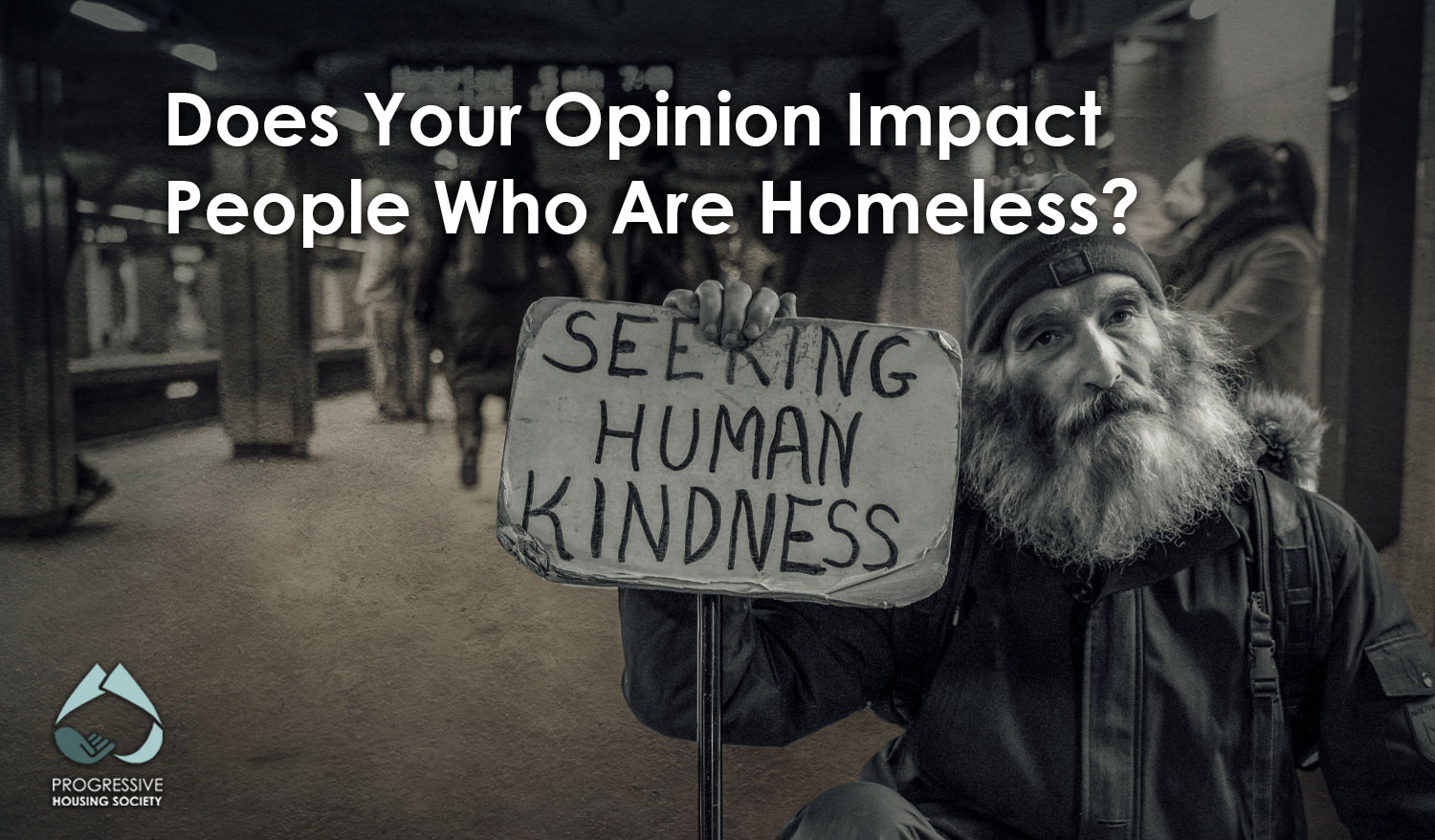Does Your Opinion Impact People Who Are Homeless?
-
by
 PHS
PHS
With each year that goes by, we continue to see an increase in the population of people who are homeless. More people are experiencing couch surfing, staying in shelters, or ending up on the street with no place to go. It is a difficult time for people. If someone isn’t able to fall back on the support of family or friends, for whatever reason, they must rely on support services and the goodwill of the public.
How the average person chooses to engage with or even talk about social services or people who are homeless can have a huge impact on the services that are available as well as the resilience of someone who is homeless.
Public Opinion Impacts Available Funding
Beliefs that are held about people who are struggling with homelessness, mental health, or addictions can directly impact the amount of money available to help those in need.
In the past, people often thought that someone struggling with homelessness or addictions were in their predicament because of poor life choices. It was seen as a failing in personal character and nothing else. Where this opinion is held, there is often little support for services that provide relief to those in need. People are also reluctant to donate to those services, preferring to donate to other causes.
Is that still how people feel today? No, people are becoming more aware of how trauma impacts the brain. It is having an effect on public opinion. Research has found that there is growing concern among the public about homelessness. We have also seen a shift away from the historical thoughts and impressions of this issue. A recent study by Tasi, Lee, Shen, Southwick, & Peitrzak (2019) found that up to 88% of people believe that homelessness is caused by health issues. These beliefs open the door for the chance to raise the money needed to end homelessness.
Public Opinion Impacts Resiliency
People who are struggling with homelessness, addictions, or mental health are often going through the worst time of their lives. They face unique challenges every day that create new barriers. These experiences and barriers can often make it even more difficult to make positive changes.
Social stigma can play a huge role in the amount of shame someone feels when they are enduring the worst time of their life. That shame can keep people from seeking help or even accepting help that is offered.
Social stigma also impacts simple things like making eye contact with people and acknowledging their existence. It’s fairly common for people to ignore someone homeless they see on the street. It can seem perfectly harmless, particularly if you don’t make eye contact with every person you come across walking down the street. However, when someone is on the street, people often deliberately avoid making eye contact or interacting with them.
This makes that simple interaction even more important for the person who is struggling. After someone is deliberately ignored for long enough, they can begin to feel like no one cares. They can also start to feel as if they don’t belong in the world. It can be extremely dehumanizing. These feelings can have a huge impact on a person’s feelings of hopelessness, helplessness, and the desire to do anything.
Make Your Opinion Count
As an individual, there are lots of ways you can have an impact on complex issues like homelessness. How you choose to educate yourself and discuss it with others plays a role in how public opinion is formed. Choosing to do little things like making eye contact with someone you see, supporting government initiatives for social services programs, or even donating all play a huge role in making a difference. How will you make your opinion count?
References
Hayes, K. (2019). Homelessness: Causes and Solutions. Retrieved from Rampages: https://rampages.us/homelessnesscausesandsolutions/public-opinions/
Maté, G. (2017, 02 03). Fixing fentanyl means treating trauma that creates addicts. Retrieved from CBC: https://www.cbc.ca/news/canada/british-columbia/fixing-fentanyl-means-treating-trauma-that-creates-addicts-1.3966361
Robbins, K. (2019). Making Contact with Homeless People Is Important. Retrieved from invisiblePEOPLE: https://invisiblepeople.tv/making-eye-contact-with-homeless-people-is-important/
Tasi, J., Lee, C. Y., Shen, J., Southwick, S. M., & Pietrzak, R. H. (2019). Public Exposure and attitudes about homelessness. Journal of Community Psychology, 76-92.


